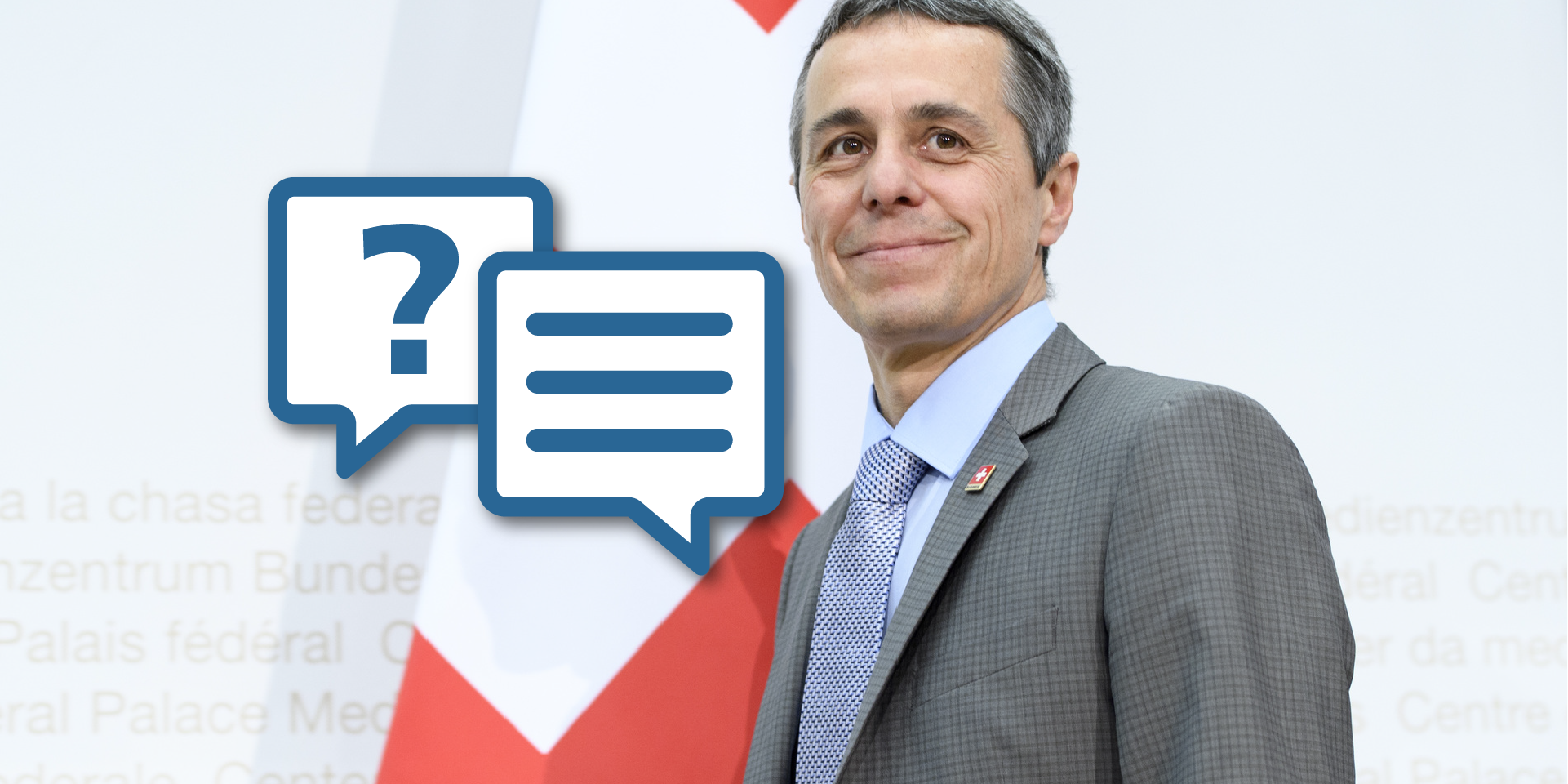«Our neutrality will be an asset in the UN Security Council»
Switzerland's candidacy for the UN Security Council is entering its final phase. "We want to contribute to security and peace in the world”: Federal Councillor Ignazio Cassis explains the reason behind Switzerland's candidacy in an interview with the "Tages-Anzeiger". Particularly the non-permanent members of the Security Council can play an important role as "a lubricant between world powers".

Is a membership of Switzerland in the UN Security Council compatible with Switzerland’s neutrality? Yes, says Federal Councillor Ignazio Cassis in an interview with the "Tages-Anzeiger": "Our neutrality will be an asset in the Security Council”. © FDFA
Switzerland's candidacy for the UN Security Council entered its final phase with a virtual event in New York, where Simonetta Sommaruga, President of the Federal Council, and Federal Councillor Ignazio Cassis each gave a speech. "We want to contribute to security and peace in the world," explains Mr Cassis the reasons behind why Switzerland wants to be a non-permanent member of the UN Security Council in 2023 and 2024. This objective is also a priority in the Federal Council's new Foreign Policy Strategy 2020–2023. The effectiveness of the non-permanent members of the UN Security Council has been demonstrated, for example, in the Syrian war, where the non-permanent members have helped to ensure that civilians received humanitarian aid," says Mr Cassis.
Switzerland's neutrality does not stand in the way of such membership. On the contrary: "Our neutrality will be an asset in the Security Council". For the Security Council is often under tension between the US, Russia and China. "The ten non-permanent members are a lubricant between world powers," says the head of the Federal Department of Foreign Affairs (FDFA). The non-permanent members can act as mediators and seek compromises. "This is part of the DNA of Switzerland. We are predestined for this function," says Mr Cassis. Should the UN Security Council authorize a military intervention during Switzerland's membership, "Switzerland would certainly not participate with its own troops". However, the Security Council has only authorised military intervention three times in the last 75 years: in the Korean War 1950–1953, in the first Gulf War 1990–1991 and in Libya in 2011.
Pressure from superpowers is nothing new
And the risk of Switzerland coming under pressure from the superpowers as a member of the UN Security Council? This risk must be borne, replies the head of the FDFA – but the risk is not only there in the Security Council: “Already today, as a mere member of the UN, we have to resist such attempts at pressure,” says Mr Cassis, referring for instance to the increasing polarisation between the US and China. ”Here, too, we must constantly decide whether and, if so, in exactly what way we take a position”.
